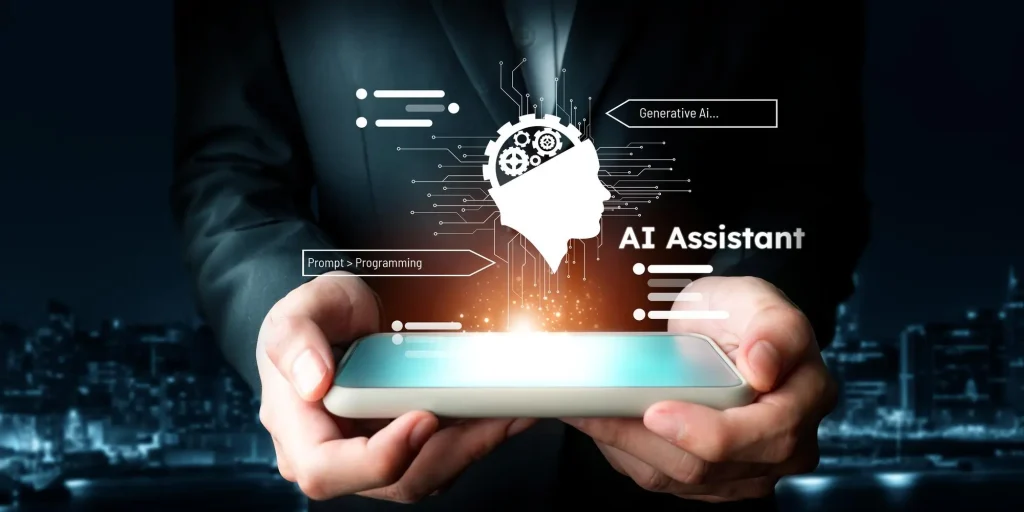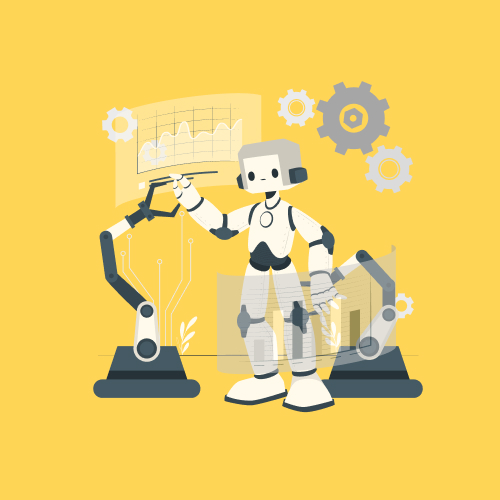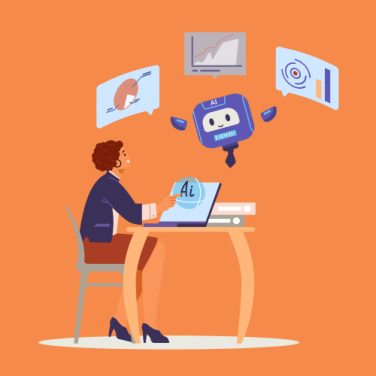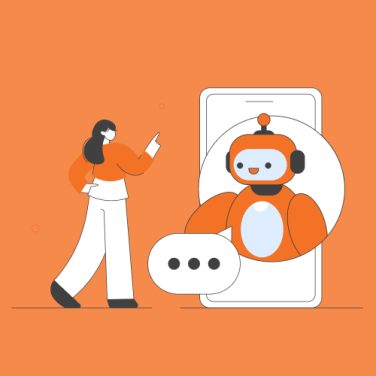Ethical AI in HR refers to the responsible and fair use of Artificial Intelligence technologies to enhance Human Resources functions while respecting fundamental ethical principles. These principles include reducing bias, ensuring transparency, and upholding the privacy and rights of employees.
In the context of HR, ethical AI involves the deployment of AI systems in a way that aligns with organisational values and adheres to legal frameworks like the EU AI Act, which categorises AI systems into various risk levels and sets guidelines to minimise risks, particularly in decision-making processes such as recruitment and performance evaluation.
Why ethical AI matters

The increasing importance of ethical considerations in AI use for HR functions stems from the need to foster trust and create a workplace culture that values fairness and accountability.
By adhering to ethical AI standards, organisations can mitigate risks associated with biases and facilitate more informed, data-driven HR decisions.
Moreover, aligning AI practices with ethical guidelines not only helps in reducing potential biases in HR processes but also enhances the transparency of AI-driven decisions. This can lead to improved employee trust and engagement, as employees better understand and feel confident in the AI processes that impact them.
Examining ethical AI implementations through real-world HR AI case studies provides invaluable insights into the challenges and triumphs of integrating AI into HR.
Within these case studies, various companies showcase how ethical AI applications have transformed their HR functions, emphasising ethical implementation of AI as a crucial component of modern human resources management.
One notable example comes from an organisation that streamlined its recruitment process using AI algorithms designed to minimise bias and ensure fairness. By aligning their systems with ethical standards, this company not only reduced the average time to hire but also improved the applicants-to-hire ratio.
This demonstrates the benefits of efficient recruitment through the ethical use of AI, which aligns with robust practices and helps organisations achieve more inclusive hiring processes.
Another compelling case study explores how a firm embraced data-driven HR decisions by leveraging AI to analyse workforce demographics and predict future trends. This approach empowered HR teams to make informed decisions, ultimately enhancing employee satisfaction and retention.
The insights gained from AI analytics enabled the company to identify potential areas for improvement, aligning their values with ethical AI standards.
- One company incorporated a continuous feedback loop to adjust AI models as new data became available, demonstrating an ongoing commitment to ethical principles.
- Another organisation found success by implementing transparent AI systems that allowed human oversight in recruitment and performance evaluations, building trust within the workforce.
These case studies reveal that organisations willing to invest in ethical AI not only advance their HR functionality but also foster environments conducive to trust, transparency, and fairness.
As more companies embark on similar journeys, learning from such successes becomes critical for future readiness in the HR landscape.
Challenges in implementing AI in HR
Implementing ethical AI in HR presents several challenges that organisations need to navigate to achieve success.
One of the most significant hurdles is addressing AI biases, which can arise from training data that inadvertently favours certain demographics, potentially leading to unfair hiring practices and workplace discrimination. To combat this, companies must invest in high-quality, diverse datasets that help neutralise inherent biases.
- Bias mitigation: Many organisations face difficulties ensuring their AI models do not perpetuate bias. An effective strategy involves continuous monitoring and updating AI models to reflect ethical standards and avoid skewing results in favour of certain groups.
- Lack of transparency: Employees often express concerns over AI decision-making processes, leading to trust issues. Providing clear explanations and open communication regarding AI-driven decisions can help bridge this gap and reinforce employee confidence.
- Integration challenges: Organisations frequently struggle with integrating AI systems into existing HR processes without disrupting operations. Building a dedicated governance council to oversee implementation and align AI usage with company ethics is crucial.
Organisations have developed meaningful strategies in response to these challenges. For instance, some companies have adopted a continuous feedback mechanism to refine AI algorithms based on real-world outcomes, ensuring their models remain aligned with ethical principles.
- Human oversight: Establishing human oversight in AI systems helps validate decisions in critical areas like hiring and compensation, allowing for necessary interventions when algorithms fall short.
- Ethical guidelines: Creating comprehensive ethical guidelines for AI implementation helps set the standard for responsible AI practices and guides HR teams in maintaining consistency with the organisation’s ethical values.
- Training and education: Providing ongoing education for HR professionals on AI ethics equips them with the skills to evaluate tools critically and ensure AI aligns with organisational integrity.
Harnessing technology for responsible innovation
Delving into the success stories of ethical AI implementation in HR provides a vivid illustration of how technology can be harnessed for responsible innovation. These HR AI case studies not only highlight promising outcomes but also reveal the effective strategies employed to achieve ethical AI implementation across various human resources functions.
One compelling example is from a global retail chain that revolutionised its recruitment process. By integrating AI systems specifically designed to exclude bias and enhance fairness, they witnessed a significant improvement in candidate diversity and quality.
This ethical implementation of AI was aligned with their corporate values, ensuring their hiring practices were both inclusive and transparent. Consequently, this led to a more holistic recruitment strategy where efficiency and fairness coexisted.
Similarly, a multinational tech company leveraged AI to refine employee management. By utilising advanced analytics, they streamlined their performance evaluation processes, aligning their practices with ethical AI standards.
Encouraging transparency and human oversight facilitated a more trusting environment, significantly boosting employee morale and trust in decision-making processes.
In another instance, a pioneering enterprise in the financial sector adopted AI-driven tools for data-driven HR decisions. They employed machine learning algorithms to predict employee turnover and improve retention strategies.
This approach resulted in a measurable decrease in turnover rates, proving that when AI is applied ethically, it can create a substantial impact on organisational performance. The insights gathered from their AI models allowed HR leaders to make proactive adjustments, ensuring their practices were not only effective but also equitable.
- Holistic recruitment: Organisations successfully integrated AI to not only speed up recruitment processes but also to enrich job candidate pools with diverse talent.
- Advanced workforce analytics: AI-driven systems provided deeper insights into workforce dynamics, enabling HR to anticipate trends and adapt HR strategies accordingly.
These success stories affirm that adopting an ethical framework for AI in HR can yield exceptional results. By focusing on transparency and bias reduction, organisations ensure fair practices which, in turn, cultivate an engaged and satisfied workforce.
Key strategies to overcome challenges
Overcoming the challenges associated with ethical AI implementation in HR requires organisations to implement strategic frameworks and processes that prioritise transparency, bias mitigation, and human oversight.
By doing so, businesses can ensure their AI applications align with ethical standards while maintaining compliance with regulations like the EU AI Act.
Key strategies include:
- Transparent processes: Transparency in AI systems fosters trust within an organisation. Businesses should provide complete clarity on how AI systems make decisions, particularly in sensitive processes such as recruitment and performance evaluations. This openness allows employees to understand the role AI plays within HR, leading to greater acceptance and confidence.
- Human oversight: Integrating human oversight into AI decision-making processes ensures that technology remains a tool for human enhancement, rather than a replacement. HR teams should have the authority to review AI-driven decisions, facilitating judgments that require empathy and nuanced understanding.
- Setting ethical guidelines: Establishing clear ethical guidelines helps define the boundaries and expectations for AI usage within HR. These guidelines should include commitments to fairness, diversity, and bias reduction, ensuring all AI models align with the organisation’s values and societal standards.
- Continuous monitoring: Regular evaluation and adjustment of AI models based on real-world outcomes are vital. This process ensures that algorithms adapt to new data and circumstances while maintaining ethical standards. This also involves revisiting datasets to enhance their quality and diversity.
Looking ahead: Ethical AI innovations

As the landscape of ethical AI in HR evolves, several emerging trends promise to reshape the future of human resources practices.
Firstly, the increased focus on transparency and accountability in AI systems is expected to grow, propelling organisations to adopt more robust AI governance structures. These frameworks will likely emphasise continuous risk management to identify and manage potential biases proactively.
Moreover, the integration of human oversight in AI processes will become more prevalent, ensuring empathetic and equitable decision-making. As AI technologies advance, HR leaders need to remain vigilant, adapting to new regulations like the EU AI Act that set guidelines for ethical AI applications.
With MiHCM’s suite, organisations have the tools to embrace data-driven decisions and foster a culture where ethical AI practices flourish, providing a pathway to not only improve HR efficiency but also uphold strong ethical standards.



